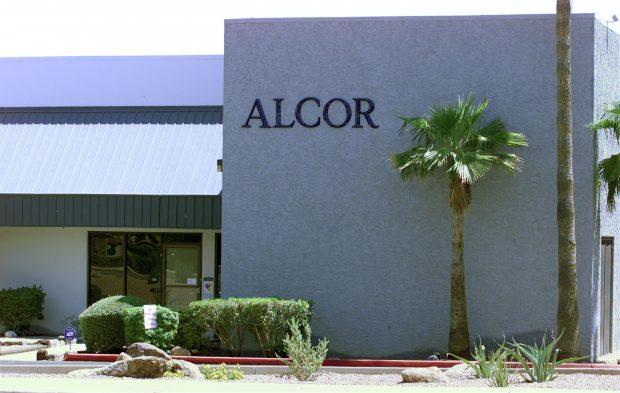However tempting it would be to think otherwise, I don’t think we will be seeing ‘JS’ on Earth again. She is the 14 year old girl who died of cancer and whose mother has won in the high court the right to have her body cryogenically-preserved in the US – against the wishes of her estranged father. There are moral issues involved in this case, but the question of which parents’ wishes should be taken into account in such cases seems rather secondary. Far more to the point is how moral is it for a company to charge £37,000 to preserve your body in ice when nobody has the faintest idea of how it could ever be brought back to life.
At best, I suppose, you could argue that the Arizona-based Alcor Life Extension Foundation, where the remains of JS will be spending an indeterminate number of years, is doing nothing worse than the Church of England – enticing us with the possibility of some kind of afterlife, without actually proving that it is possible. But then again, £37,000 does seem rather more than one is expected to put into the parish collection plate. What kind of extra charges would be imposed by the cryogenics industry if the time ever came to revive its clients is anyone’s guess – but given that a US hospital was recently caught out charging parents to hold their new-born baby I suspect there may be some horror bills to come. It would be rather depressing to think of oneself languishing in the freezer in 100 years’ time, even though the technology had been invented to bring frozen people back to life, just because one’s great grandchildren were struggling with the mortgage and couldn’t afford the defrosting fee.
It seems to me that trying to freeze and revive a fragile and diseased body is the wrong way to go about it. If you want to achieve immortality surely a more likely way to achieve it would be to digitise the contents of the human brain. If we could store our thoughts, memories, emotional traits and everything else which makes us human the information could potentially then be downloaded into a succession of disposable, artificial bodies. If it really thought it could bring us back to life, the cryogenics industry would be trying to find a way of mapping our brains. But then that would rather lack the theatre of preserving our bodies in what, let’s face it, is really just a jumped-up morgue.







Comments